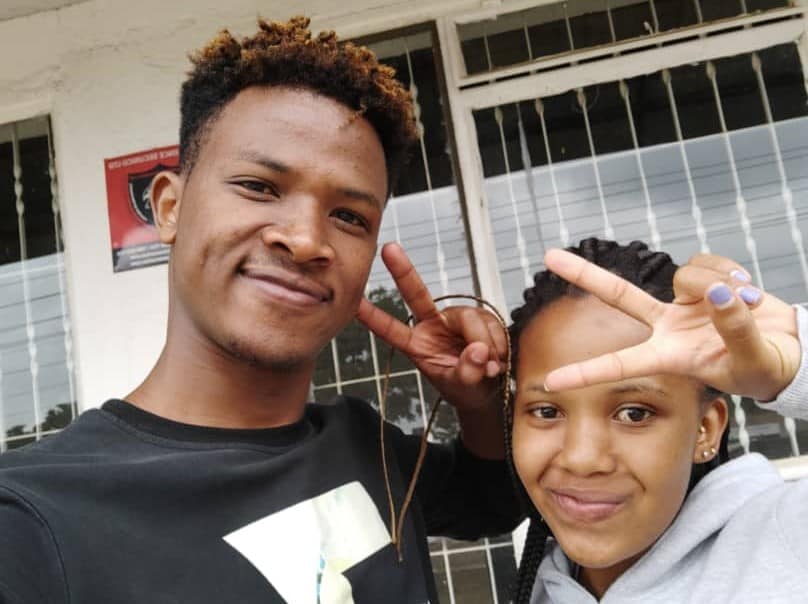How We Give Back
The Wild Source Mission
The Wild Source is a mission driven safari operator. We specialize in wildlife biologist planned safaris, using travel as a conservation tool to empower local people and conserve wildlife and wild places. We are known for our remarkable guiding team, serious wildlife viewing and creating camp ownership opportunities for local people.
The Wild Source has a wide range of innovative, responsible tourism programs that focus on enriching the lives of the local people and conserving wildlife and wild lands where we operate safaris. To read about our economic program that is pioneering new standards in the safari industry for local ownership, visit our Disruptive Empowerment page.
In April 2020, we announced the launch of The Wild Source Foundation, our 501(c) 3 nonprofit which accepts donations to fund community oriented programs in the countries where our team lives and works. If you are inspired to make a donation, please click the Donate button below or contact [email protected].
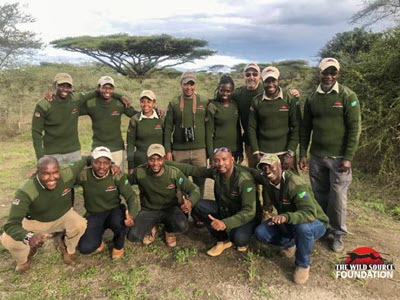
The Wild Source Foundation
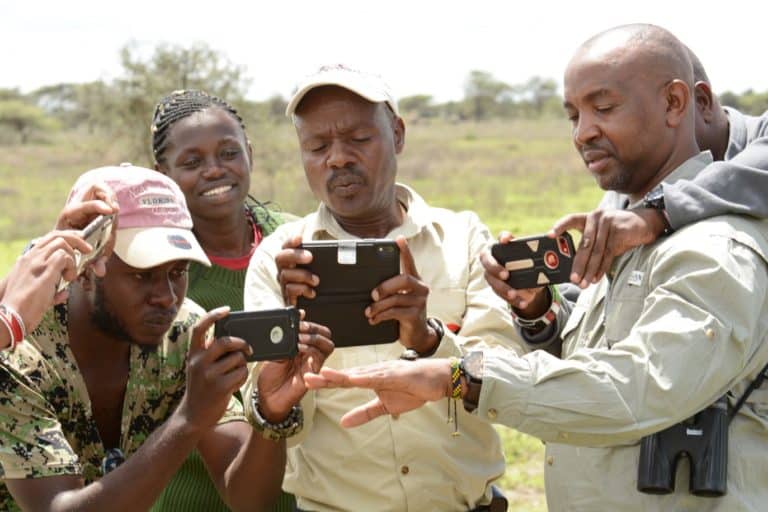
Background and Formation of TWSF
As Covid-19 ground the safari industry to a halt in March 2020, we faced massive challenges. It was quickly evident that in 2020 The Wild Source would have less ability to support our mission-based projects, simultaneously the communities we worked with would be facing economic devastation and potentially health risks. Past travelers began contacting us with their concern for the wonderful people they had met on their African safaris and asking how they could help. This was a profound intersection, seeing the rapid rise of hardship, in concert with people reaching out wanting to donate funds to assist. In response, The Wild Source Foundation (TWSF) was formed.
We are grateful for the generous support received in dire times in 2020, and growing from there to present day. We believe we have produced remarkable results with programs that have been life sustaining for many local Africans facing dire circumstances, as well as conserving wildlife which largely temporarily lost the protection that tourism normally provides.
As we have all moved forward from the initial crisis-driven founding of TWSF, you have continued to support the wide array of projects that have been successful in our first few years, and where we have seen excellent positive impacts invest in further expansion to build on the benefits that have been created. As funding allows, TWSF hopes to start additional projects, especially within the area of entrepreneurial empowerment as right now finding economic opportunities is where we see the most vital need. As tourism has moved into recovery, we are excited that TWSF has been able to shift from being reactionary to a much more strategic state. We have dove headfirst into cutting edge new wildlife conservation research initiatives, as well as transformative economic opportunities that will be multi-year pursuits. We remain grateful for the rapid and generous response of our donors during such a challenging time and ongoing support for the last nearly four years.
-Bill Given, Director of The Wild Source Foundation
Mission
The Wild Source Foundation is dedicated to creating lasting wildlife conservation through the empowerment of local communities. We focus on three areas of need: wildlife research and conservation, creation of economic empowerment, and education.
Mechanism
The Wild Source Foundation leverages the on the ground partners and connections of The Wild Source safari operation to identify needs directly from the communities where our safaris operate and collaborate to create opportunities for community empowerment and conservation of wildlife.

Area of Need #1: Wildlife Research & Conservation
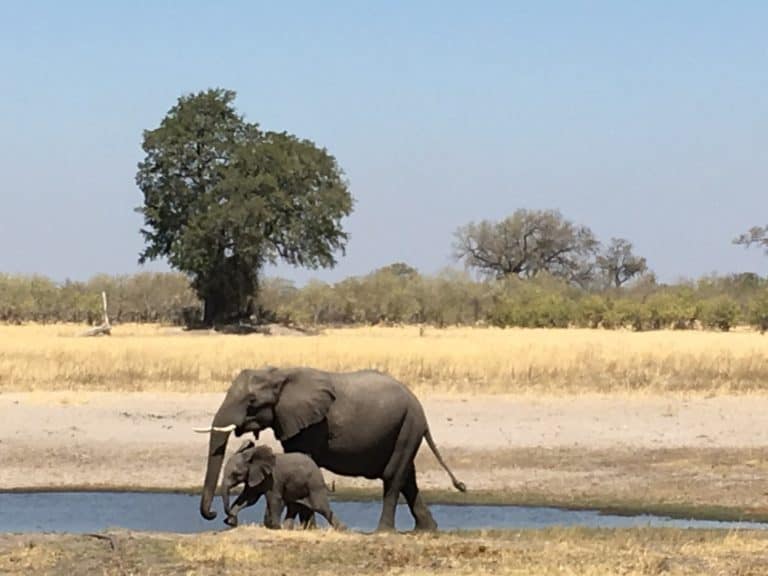
Efforts Supported by The Wild Source Foundation
- Wildlife monitoring & anti-poaching Okavango Delta (Botswana)
- Big cat research Ndutu/Serengeti (Tanzania)
- Research paper submitted in 2020 (published February 2021) African Journal of Wildlife Research – ‘Outcomes of lion, Panthera leo, translocations to reduce conflict with farmers in Botswana’
Foundation in Action: Botswana
The Foundation has been funding the effort for antipoaching/wildlife monitoring in Botswana’s Okavango Delta in the sensitive NG-12 area that borders 5 villages. The most interesting finding was the discovery of a newly formed pack of African wild dogs.
Researchers from Botswana Predator Conservation program are studying emigration/dispersal of wild dogs and had a GPS collar on one of eight males that dispersed from the Moremi Game Reserve. Via satellite the researchers could see that the collared male traveled 175 km in five days to reach the Bushman Plains area, but beyond location the Swiss researcher, who could not access the location due to Covid had no idea what was happening on the ground.
The dogs were discovered by Motswasele ‘Diesel’ Tshosa, the leader of our wildlife patrols. Diesel noticed the collared dog and recognized these males were new to the area. He also realized they had formed a pack with four females that were previously members of the Golden pack.
The Golden pack is one of the three resident packs that Diesel has been monitoring in the area. The Swiss researcher was grateful when Diesel contacted him and shared the full outcome from the emigration movement of these dogs.

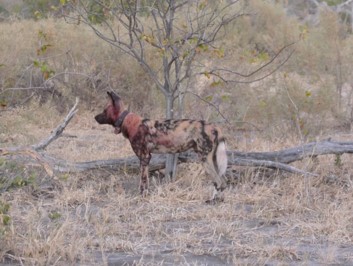
Area of Need #2: Economic Empowerment
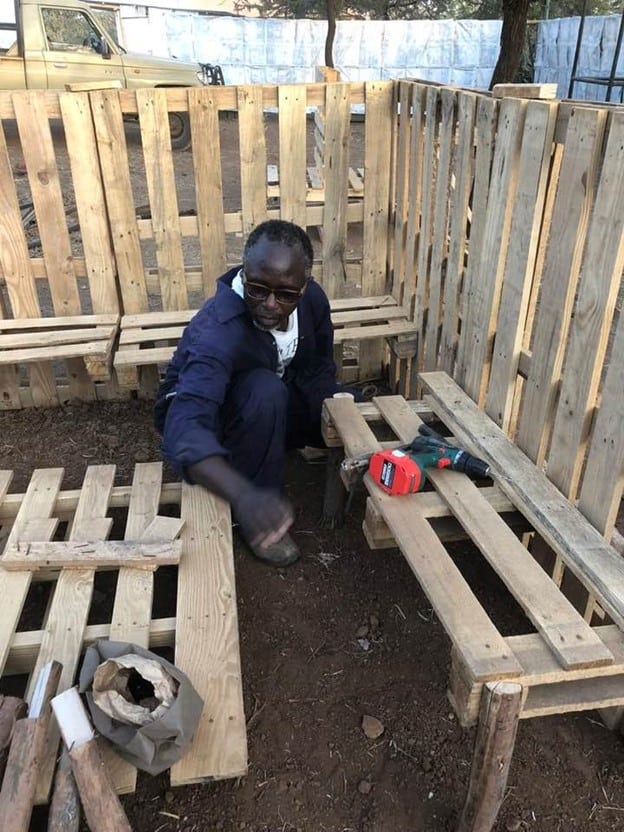
Efforts Supported by The Wild Source Foundation
- Funding Contribution for Ping’s Dairy (Kenya)
- Funding Contribution for Opuk Pub (Tanzania)
- Maasai Designs: Craft and Fashion projects to grow Entrepreneurship for vulnerable Maasai women (Kenya)
- Business Planning Services for Gudigwa Store project (Botswana)
- Food donations to serve multiple Maasai communities largely out of work from Covid tourism shutdown
Foundation in Action: Kenya
in Kenya legendary Maasai guide, Ping, has developed a Dairy Farm project. The start to the project was to build the farm infrastructure, including space to house 12 cows, an area to raise chickens, and to grow Napier grass. Eight non-grazing dairy cows have been purchased and six were pregnant to fuel a growing herd. Funds from selling milk allowed for the purchase of 40 chickens so the project is off to a fast start. Not only does this farm provide food security and income for Ping’s family but it is also being operated to the benefit of the wider Maasai community. Here are some highlights:
- A portion of dairy sales are going to pay for the education of young Maasai women who would otherwise be subject to arranged marriage as their families cannot afford continued education on their own.
- Milk is being donated to three single mothers with young children.
- Chickens bred from the original 40, as well as some of the future calves, will be given to vulnerable members of the community (orphans, single mothers).
- The Farm is serving as a first of its kind in the County as a demonstration project, where members of the community can learn how to create their own profitable dairy operation.
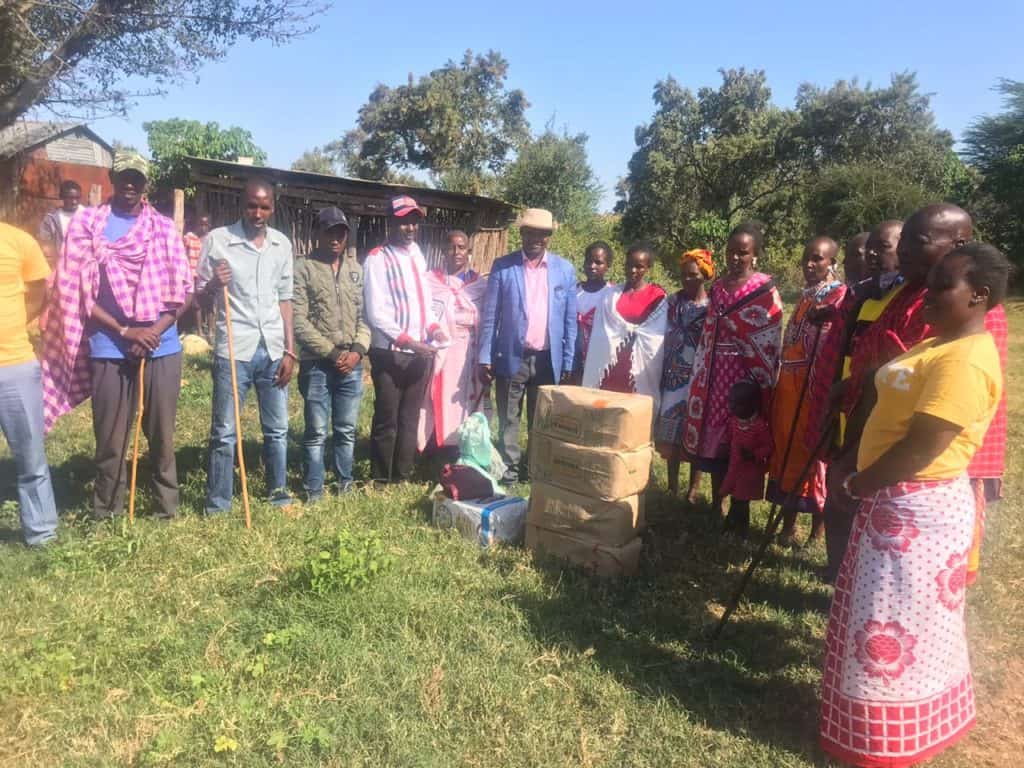
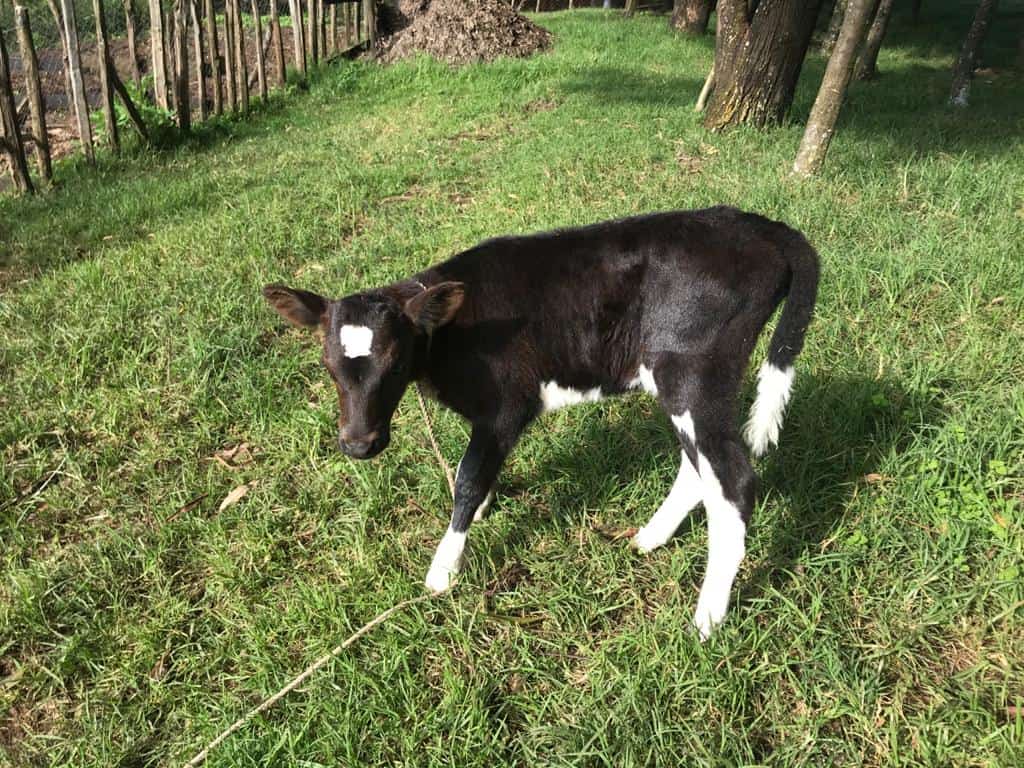
Area of Need #3: Education & Job Training
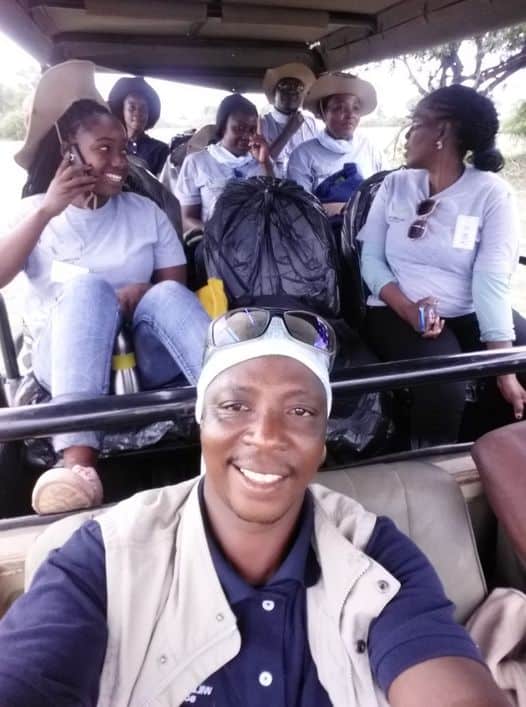
Efforts Supported by The Wild Source Foundation
- Tuition Sponsorship for Secondary School pupils (Tanzania)
- Driving school for wildlife biologists in training (Tanzania)
- Worked with Wild Bird Trust Botswana for Teacher Training in the wilderness (Botswana)
Foundation in Action: Tanzania
While safari visitors often marvel at the knowledge and bush skills that the local guides and wildlife experts have, in the beginning most are missing one essential required skill that most Westerners take for granted – driving. Many Africans grow up with no opportunities to operate a vehicle.
The big cat research team in Tanzania brought on two new biologist trainees in 2020, Winnie and Josephat. Both have been working as service staff at Njozi Camp and had shown great interest in our big cat research efforts.
As trainees they have been able to observe big cats, learn their behaviors and how to record data for the study but they both had a big short coming of not being able to drive. In June TWSF fully sponsored the tuition for Winnie and Josephat to attend driving school. Both successfully completed the course and were able to become licensed drivers.
